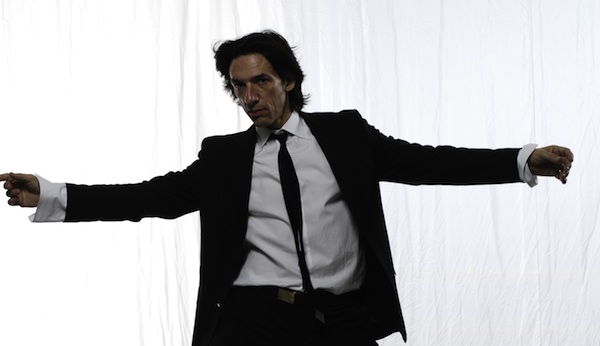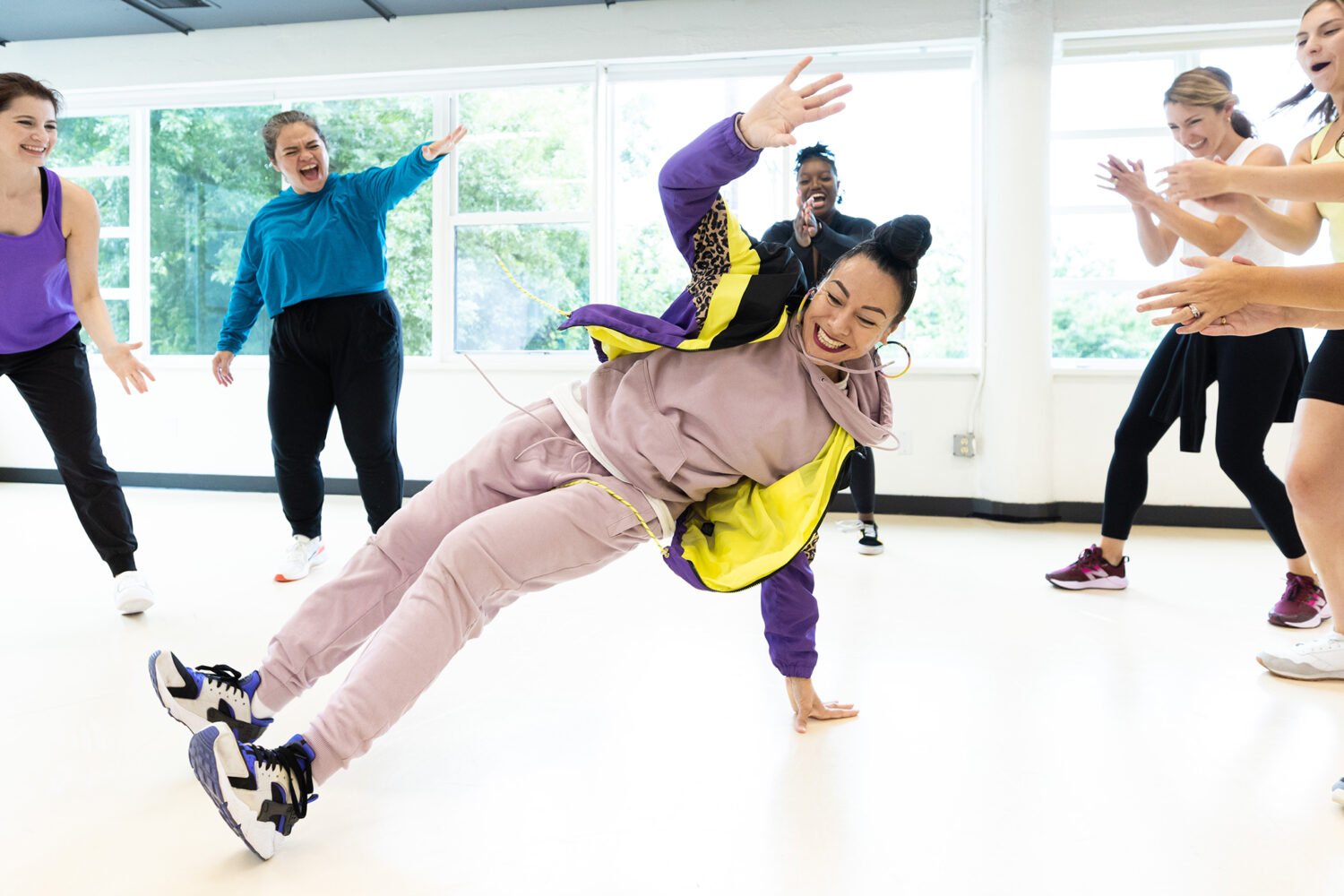Washington Ballet artistic director Septime Webre. Photograph by Stephen Baranovics, courtesy Washington Ballet
The last few years have not been easy for the Washington Ballet. A labor dispute with the dancers scuttled the company’s 2005 run of Nutcracker, the holiday-season cash cow of many ballet companies. According to Washington Post dance critic Sarah Kaufman, at the heart of the dispute were “thorny questions [about] how much control [artistic director Septime] Webre should have.” Then the economic crisis hit, and the orchestra that played for the company’s productions was dismissed because of financial constraints, in 2009. The use of recorded music instead of full orchestra became more or less permanent at the beginning of last season. Last week, Septime Webre spoke to Washingtonian about the company and what its plans are for next season, his 13th as artistic director.
Reports have put the annual budget of the Washington Ballet at around $8 million but shrinking over the last couple years. Webre confirms that it is still somewhere around that figure. “Ticket sales have been doing really well,” he says, “and fundraising has stayed strong, from individuals particularly and special events. The biggest challenge, the only major challenge, I would say, has been the loss of government funding. We had been receiving support from the city of Washington, about $1 million a year. Two summers ago, that was cut to zero, in the budget balancing process, making a huge loss from which we had to recover.” The budget battle being fought right now at the federal level may imperil the company’s funding, too, as support to the arts could be cut there.
The Washington Ballet recently announced that Peter M. Branch is its new Executive Director, bringing experience in raising funds in capital programs, as a head of schools, with him. Is there any future plan to bring back a live orchestra in any form to the Washington Ballet? “There’s a hope, we are interested in bringing it back,” Webre confirms, noting that negotiations with the musicians union continue. “We were determined not to cut any dancer positions, or to cut community engagement programs, particularly those in Ward 8. We are like the economy, we are recovering.” He acknowledges that some salary reductions were offered by the orchestra, but at the moment it looks likely that next season’s Nutcracker, at the Warner Theater (December 1 to 24), will be performed to recorded music.
Not that there will be no live music in the Washington Ballet season: It will open with a revival of The Great Gatsby (November 2 to 6), in the Kennedy Center Eisenhower Theater. This was the major achievement of the previous season, a work that Sarah Kaufman called “go for broke” and “ambitious” but ultimately “flawed.” It has a jazz score, put together by Billy Novick, combining arrangements of jazz standards with new music, and Novick will lead an ensemble of nine jazz musicians and two vocalists. Another Latin dance piece, ¡Noche Latina!, is scheduled for the KenCen Eisenhower Theater (May 9 to 13), an assortment of dances including Like a Samba, a choreography by Trey McIntyre to the music of Brazilian jazz singer Astrud Gilberto (it will be danced to a recording). A Twyla Tharp tribute is also planned for the KenCen Eisenhower Theater (February 22 to 26), in honor of the American choreographer, who turned 70 earlier this month, all designed to be danced to recorded music.
The major production of the year is the world premiere of a new version of ALICE (in Wonderland), in the KenCen Eisenhower Theater (April 11 to 15). New York-based composer Matthew Pierce is writing a new score, which will have “a contemporary feel to it,” says Webre. “He is a consummate storyteller, who uses music to help tell the story.” The music will be performed live, with an ensemble of about 12 musicians, placed both in the pit and on the stage, integrated into the performance, as Webre did in Gatsby, making use of the hydraulic orchestra pit there. In addition to Webre’s choreography, the costume designs and libretto will be contributed by Liz Vandal, who has worked for Cirque de Soleil. “She is coming from a history of fashion perspective, bringing a chic off-the-wallness to the entire affair.”
What conclusions should one draw about the Washington Ballet from such a season and the ongoing absence of a live orchestra? Is it still a classical ballet company? “Actually, we remain the same as we always were,” Webre claims. “Mary Day founded the Washington Ballet 34 years ago, as a company to use classical dancers to create neoclassical works. The focus was always on new work, not really on 19th-century ballets.” Webre has introduced some choreographies of classical works, like La Sylphide and Le Corsaire during his tenure, but acknowledges that it is hard to compete when “Washington audiences are already seeing so many of the best classical works presented by the Kennedy Center.”
“Good repertory planning is partly about knowing your identity,” Webre says, “but it also means throwing your audience a curveball every once in a while.” Webre referred to some of the productions on next year’s season as “dance-theater pieces,” and the term says something about how he sees what he is creating. Audiences are obviously not turned off by this approach to ballet: Gatsby was the company’s most successful production since Webre’s Nutcracker. He envisions his new ALICE in a similar way: “It has an intimate story that will have a big pageant kind of feel.” The full-time dancers, numbering “about 20,” Webre says, will be joined by the second company, younger international dancers, ages 18 to 20, with trainees and children from the company’s local schools (playing “hedgehogs being batted around by flamingos, for example” he says with a laugh), adding up to about a total of about one hundred dancers.
Other exciting performances on the schedule for this year include a trip to Bodrum, Turkey, where the dancers will t
ake part in a dance festival (“We have not traveled in a few years,” Webre notes); participation in the VelocityDC festival at Sidney Harman Hall (October 20 to 23), in collaboration with the Shakespeare Theater Company, WPAS, and DanceMetro; and a new work for a younger audience next summer, Webre’s new staging of The Lion, Witch, and the Wardrobe at Bethesda’s Imagination Stage, featuring another original score by Matthew Pierce and puppets designed by Erik Van Wyck. “Dancers will be able to ride on Aslan’s back,” notes Webre with child-like enthusiasm, after admitting a long-held fascination with the C. S. Lewis book.
Subscribe to Washingtonian
Follow Washingtonian on Twitter
More>> After Hours Blog | Arts & Events | Happy Hour Finder | Calendar of Events
















